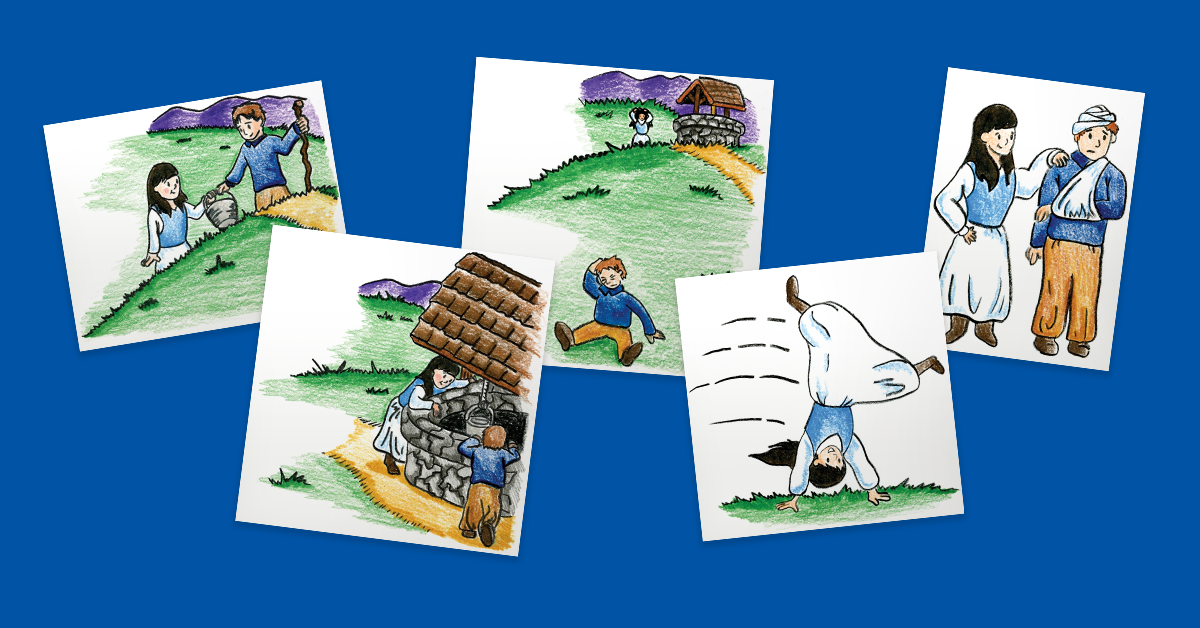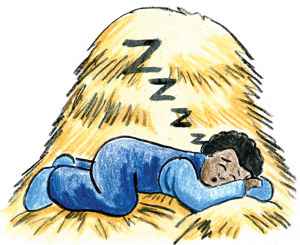Develop Language Skills with Nursery Rhymes

Let’s play a quick game. I say, “Jack and Jill went up the hill to ____.” Can you finish the rhyme? I’ll bet you can. What is it about nursery rhymes that make them so memorable, and more importantly, why would there be value for them in a 21st-century education?
For generations nursery rhymes have provided us with a way to master language skills in a memorable and fun way. Could it be that there is more to this than just “Simple Simon met a pieman…”?
Are Nursery Rhymes Beneficial?
Most children begin exploring language before the first birthday. Nursery rhymes are a vital component of that language exploration because they allow a child to hear vocabulary in a way that catches and holds his attention. They begin to lay the pathways that will allow him to experiment with language. In the small space of a nursery rhyme there is SO much that goes on: a singsong tune that is easily remembered, the rhyme itself, the rhythm or pattern of the verse, alliteration, and often, even actions – haven’t you held hands and turned in a circle to “ring around the rosie”? Research indicates that the singsong nature of nursery rhymes actually helps your child with his language memory skills. The very repetitive nature of nursery rhymes creates an atmosphere of social interaction with children that helps their language skills develop.
Despite all the great language foundation that nursery rhymes provide, fewer 21st-century parents use them as a tool to help teach language. Often I find parents today who don’t use nursery rhymes at all with their young children. Dr. Karen Holinga repeatedly points to research that tells us a child at the preliterate stage of development must have up to 1000 hours of language input to be able to process language correctly. Nursery rhymes can be a pleasant and easy way to pass those hours – with phenomenal benefits.
Research indicates that a child who has committed eight nursery rhymes to heart by the time he is four years old will be more likely to be an accelerated reader. Who knew that something so simple as “sing a song of sixpence, a pocketful of rye” would be so tremendously beneficial in helping in language development?

Why Does Spelling You See Use Nursery Rhymes?
Parents often ask why we use nursery rhymes in our Jack and Jill level of Spelling You See. Given that research says that phonemic awareness (the ability to distinguish each individual sound in a word) is the #1 predictor of a child learning to read, hearing and playing with language in nursery rhymes is very beneficial. Nursery rhymes help emerging readers feel successful, even if they are not quite yet fully reading on their own. Children can “pretend read” nursery rhymes, and it gives them a feeling of success right away. Building their reading confidence is essential in their ultimate reading success. Copywork becomes more meaningful when they are familiar with the content.
I reached out to Dr. Holinga on this critical subject, and she shared the following with me:
Knowing the rhymes first, and then matching those words to print by pointing not only helps to train eye movement and tracking but also teaches the critical ability to ‘read the spaces’ between the words because children often confuse syllables with words. Pointing to the first letter at the beginning of each word helps eliminate that confusion. For example, the word ‘tumbling’ in Jack and Jill is ONE word, and familiarity with the rhyme helps a child understand this.

When children ‘pretend read’ nursery rhymes, it helps them feel like readers right away and builds in a feeling of success and confidence. Lifting short phrases and sentences from the known rhyme makes the copywork meaningful and fun. In fact, the research indicates that after a child has carefully pointed to and “read” a rhyme multiple times his brain actually starts to register and store individual words in long-term memory. The context here is so important to helping your child develop their reading ability.
Mother Goose did indeed have something special going with her rhymes. Their benefit in language development cannot be discounted. Go out and “skip to my Lou” with “Little Boy Blue” so your “little Star” will “twinkle, twinkle”!
Have You Heard About Spelling You See?
Spelling You See is an elementary and middle school spelling curriculum that uses a developmental approach to integrate writing, reading, speaking, and listening.